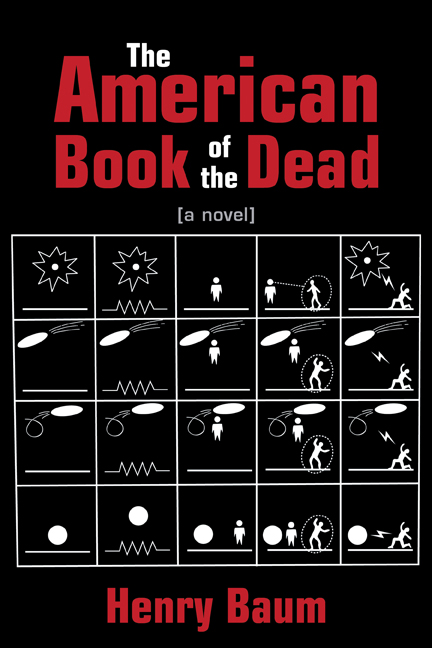The Plot Against America : A Novel by Philip Roth
Don’t know what I can add to the discussion that hasn’t been written by 100,000 reviewers. Not that I’ve read any of them. I tend to stay about from literary rags like the New Yorker and the NY Times Book Review because they make me feel envious and inadequate, and then superior which makes me feel jilted and forsaken. None of these things are positive. More suffocating negativity, which is not a promising way to begin a book review for a novel I enjoyed.
My reaction to this novel has a lot to do with writing The American Book of the Dead in which a fascist, hard right wing President takes office--the worst paranoia about GW come to life. In short, The Plot Against America is about Charles Lindbergh winning the White House in 1940 and beginning a Nazi agenda in the States. It is a glimpse into what the holocaust might look like on American soil. It is a deeply affecting premise. Methodical and convincing. I began the novel before the election and I even thought of starting the American Book from scratch. If Kerry won, I would write an alternate history of what the world would have looked like if Bush had won the election. Now I feel like we’re living in an alternate history where anything is possible and no dystopic paranoia is farfetched. I don’t think we’re headed to a fascist theocracy overnight--but even the echo of a potential is scary enough.
Philip Roth is a schizophrenic writer. David Bowie sings in a lot of voices as well so there’s really no problem with it. Every novel seems to have a different voice. The Plot Against America is closer to Goodbye, Columbus than Portnoy’s Complaint. This isn’t hyperactively sexual like some of his novels, or hyperactively intellectual like American Pastoral. Which is probably why I enjoyed it more--it lacks the ego and pretension of some of his other books. The Professor of Desire is the one that irks me most, in which the main problem faced by the author is that he is having a menage a trois with two Swedish girls. Poor guy. I'll admit that I tried to read that book when I was particularly hard-up, so maybe it’s better than that.
I am exactly the audience for The Plot Against America. I am a sucker for fiction that borders on non-fiction. Unlike In Cold Blood or The Executioner’s Song, this novel is fiction first, non-fiction second, with a memoir somewhere in there as well. It’s well-researched but not overwhelmed by its research--I am sure there’s a review out there which says the opposite. I imagine there are a lot of true stories in this book, given a different background. He manages to meld all of these different mediums together. Plainly, this is a well-written book. Roth is great at ending chapters and mid-chapter breaks. It is all very similar to what I want to do with my new novel, not that I've done it yet. In The American Book I am trying to divine what my life will be like in 20 years during wartime--here, Roth is trying to determine what his family’s life would have been like during a tragic alternate history. With the election now over, and a potential fascist now in the White House with a blank check, the novel was strangely comforting.
Subscribe to:
Post Comments (Atom)


3 comments:
Meandering through your site, I just ran across this entry. I'm about 3/4 through Plot right now, and loving it. I, too, am a sucker for nearly-non fiction. Have you read The Man in the High Castle, by Philip Dick? It takes place in a similar counter-factual world, except the Germans and the Japanese actually defeated the U.S. and have divvied it up. It lacks Roth's ability to invoke perfect believability for a fantastical premise, but adds some interesting thought experiments.
The endnotes to Plot are really fascinating, too. The premise is far less fantastical than it seems to someone, like me, born thirty years after the War.
Although I have a general weakness for nearly-non fiction, I have a particular weakness for near-non fiction that has to do with WWII coming out differently. I guess it's because to the extent WWII can be described as a single "event," it is the seminal event of the 20th Century and, more so than any other, can be said to have divided modern history in half.
I haven't read Man in the High Castle for a while, but I remember not liking it as much as his others. For some reason, that's the one that gets all the praise. Probably because it's a novel that "straight" readers can like. I'm a Ubik, Three Stigmata of Palmer Eldritch, Valis man myself.
There's a review on Amazon for The Plot which says you shouldn't read the novel in relation to the current political climate, and I thought--why the fuck not? Because we have to be above such conspiratorial thinking? It's not that far-fetched. For someone who has a grandfather who was in WWII, this was exactly what made the novel interesting.
I disliked the novel because the alternate history he creates is not believable, especially his treatment of Burton Wheeler. See my post here.
Post a Comment